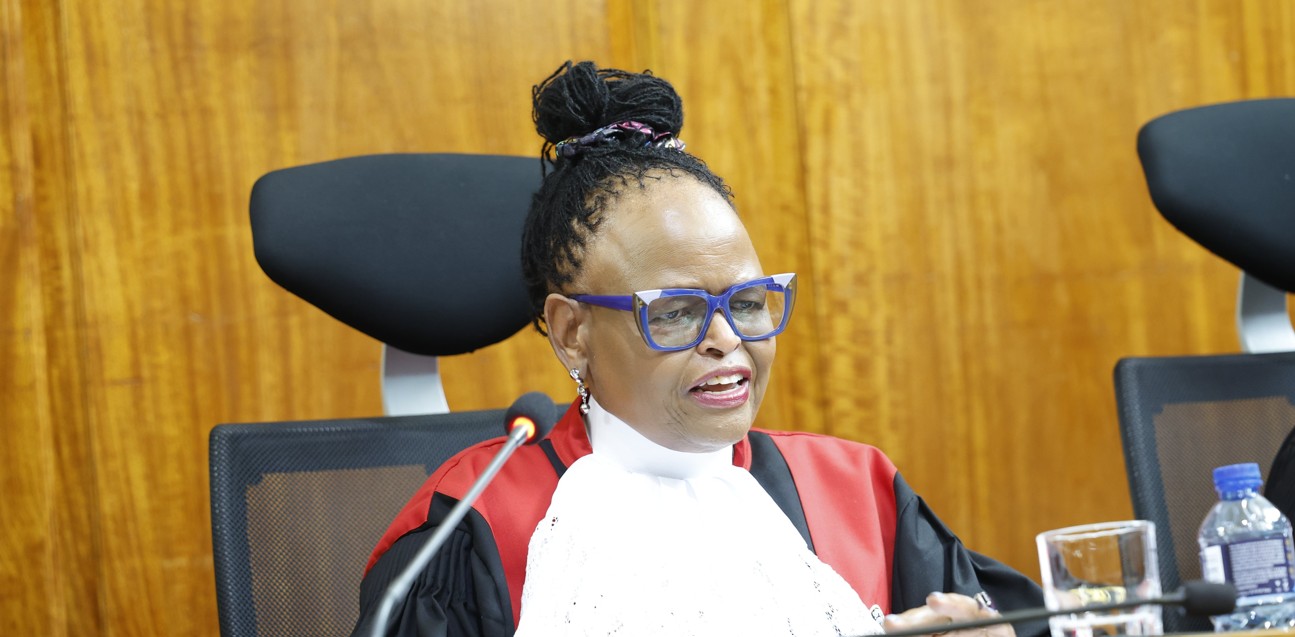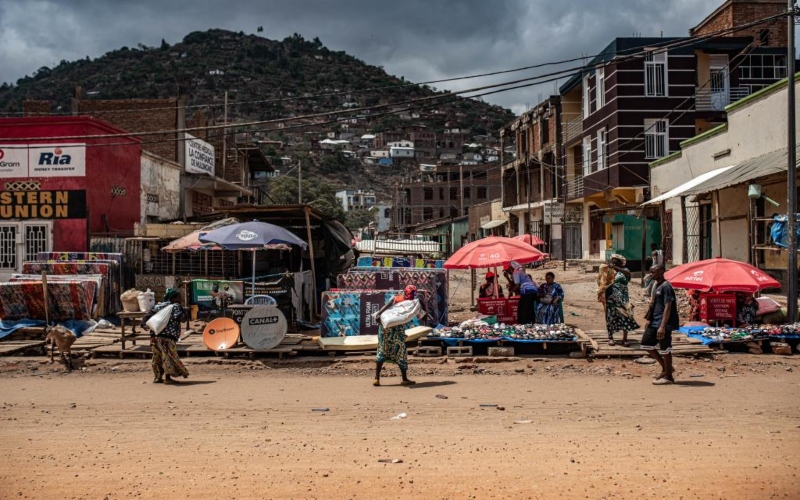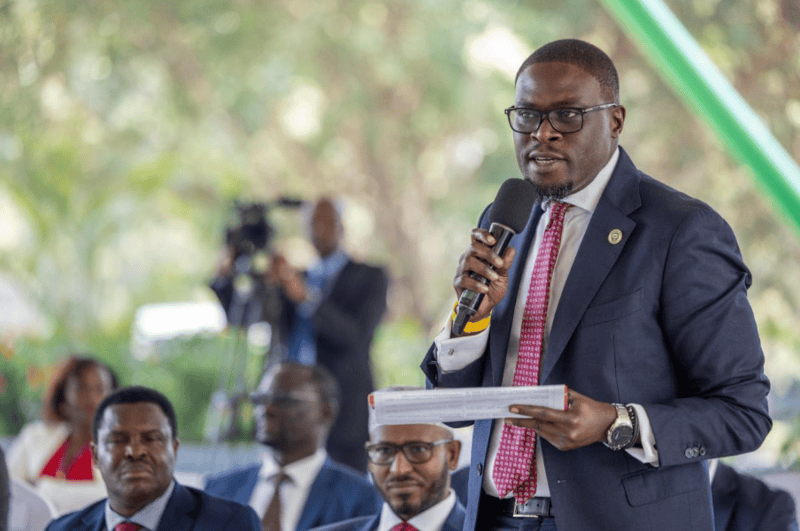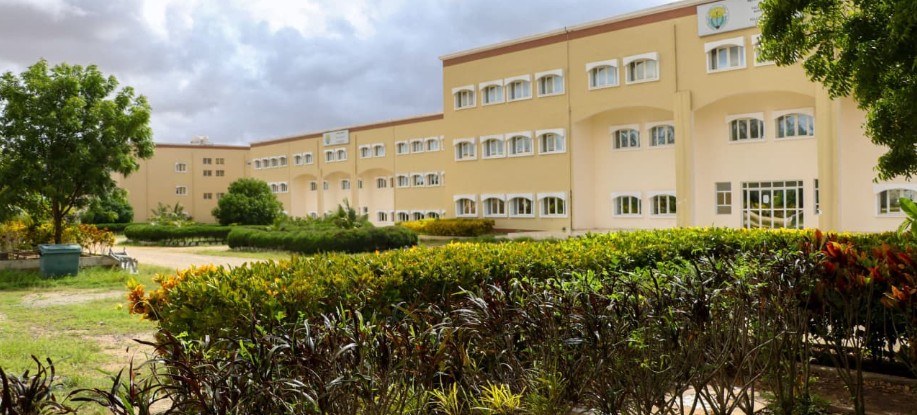Matiang’i accused of meddling in sugar scandal while serving as Interior CS
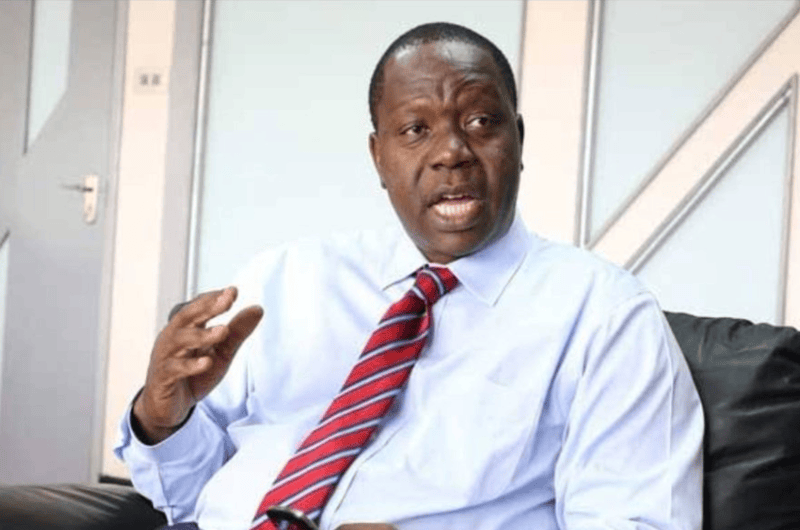
The revelations emerged during the trial of Kenya Revenue Authority (KRA) and Kenya Bureau of Standards (KEBS) employees, alongside an importer and a clearing agent.
A Mombasa court has heard allegations against former Interior Cabinet Secretary Fred Matiang'i, accusing him of political interference in the 2018 seizure of sugar imported from Egypt.
The sugar, initially condemned over purported mercury contamination, has now been revealed to have been unfairly banned to create a lucrative market for politically connected cartels.
More To Read
- Study finds over half of skin-lightening creams contain unsafe mercury levels
- Jubilee appoints Matiang'i as deputy party leader and 2027 presidential flagbearer
- Matiang’i raises alarm over Kenya’s image as calls grow for answers on missing Kenyans
- Matiang’i: Raila’s 'swearing-in' at Uhuru Park was my toughest test at Interior docket
- Uhuru Kenyatta breaks silence on post-election turmoil, threats
- Matiang’i: My campaign runs on funds from friends and Kenyans, not illicit wealth
The revelations emerged during the trial of Kenya Revenue Authority (KRA) and Kenya Bureau of Standards (KEBS) employees, alongside an importer and a clearing agent.
Authorities charged these individuals with releasing sugar into the Kenyan market. The employees assert that the authorities weaponised the mercury contamination allegations for political purposes, leading them to take unprecedented actions that benefited certain individuals.
KRA Customs Head Verification Officer Vivian Moraa testified that the mercury claims lacked merit and were politically motivated.
“Dr Matiang’i spoke of mercury, yet the results we obtained after analysing samples of 10,000 bags of brown Egyptian sugar pertained to issues of moisture content. None of us were aware of this mercury that was being discussed by the then Interior CS,” Moraa stated.
She added that her role in releasing the consignment was routine, conducted through the Simba system, and underlined that she assigned the physical verification to officers under her supervision.
Supporting Moraa’s claims, KEBS Inspection Manager Samuel Onjolo argued that the seizures were part of a politically driven agenda.
“There was political pressure and a need to create a market for certain individuals,” he said. “If the issue was genuinely about the sugar’s safety, KEBS and port health officers, not KRA, would have handled the matter.”
Onjolo revealed that the sugar consignment arrived with a Certificate of Conformity (COC) from Egypt, verifying it met Kenyan safety standards. He further noted that the Office of the Director of Public Prosecutions (ODPP) had initially hesitated to press charges but succumbed to considerable political pressure.
Daniel Samuel Musta, another KEBS inspection officer, detailed how the political environment forced authorities to deviate from standard protocols.
“An internal memo directed us to test all sugar consignments for mercury, even those with valid COCs, due to the widespread public outcry,” Musta explained.
Onjolo corroborated this, adding, “Normally, we would not test goods with valid COCs. However, the mercury claims prompted communication from headquarters, which mandated testing."
He criticised the involvement of the Directorate of Criminal Investigations (DCI) and the ODPP, questioning their decision to override expert opinions. “If the KEBS officer in charge declared the sugar fit for use, on what basis did the DCI and DPP, who lack expertise in sugar science, overturn this decision?”
The safety of the seized sugar became a focal point of the trial. Onjolo presented technical findings indicating the sugar’s moisture content was 0.25 per cent, slightly above the acceptable threshold of 0.2 per cent but far below the danger level of 0.85 per cent.
“The sugar was safe for consumption, as confirmed by microbiological standards,” he asserted.
He noted that minor deviations in moisture content do not compromise safety, especially when the sugar is intended for industrial use, such as baking.
The importer, Flora Bakers Ltd, clarified that they intended the sugar for baking purposes rather than direct sale. The consignment arrived at the Port of Kilindini in mid-June 2018, with samples subjected to extensive analysis. Despite these assurances, KEBS later claimed the consignment was substandard, leading to arrests and prosecutions.
2019 saw the acquittal of the accused, which included KRA verification officer Monica Waceke, Port Health head Peter Nzui Chidenge, and directors of Flora Bakers Ltd. However, High Court Judge Anne Onginjo has recently set aside their acquittal and ordered them to present their defence.
“As importers and agents, they should have ensured the necessary documentation was issued, allowing the goods to be released and confirming their fitness for consumption,” Judge Onginjo ruled.
The state accuses the defendants of releasing 10,000 bags of sugar into the market without waiting for results from the government chemist. Prosecutors argue this act constituted abuse of office, willful disobedience of statutory duty, and breach of trust.
The court will deliver the verdict on February 28, 2025.
Top Stories Today
